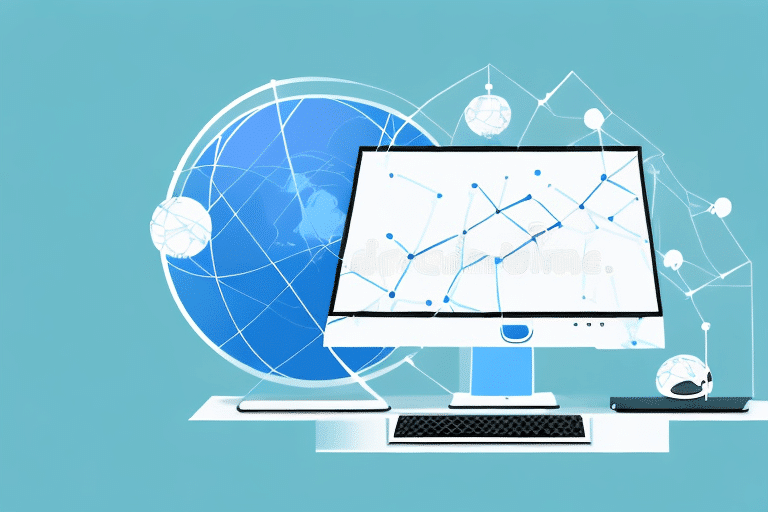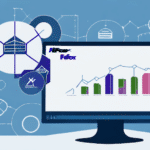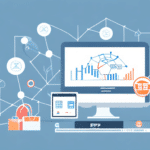Introduction to DHL eCommerce and Epicor ERP
In today's fast-paced eCommerce landscape, having reliable and efficient logistics is crucial for success. DHL eCommerce stands out as a leading logistics provider with a global reach and a focus on tailored eCommerce solutions. On the other hand, Epicor ERP offers a robust business management platform that integrates various business functions, including finance, supply chain, and customer relationship management.
The integration of DHL eCommerce with Epicor ERP allows businesses to streamline logistics operations, enhance order fulfillment efficiency, and gain comprehensive insights into their business operations. This seamless connection not only reduces manual processes but also fosters improved customer satisfaction through reliable and timely deliveries.
Benefits of Connecting DHL eCommerce with Epicor ERP
- Improved Order Fulfillment Times: Automating logistics and supply chain processes significantly reduces order fulfillment times, ensuring quicker delivery to customers.
- Real-Time Tracking: Integrating real-time shipment tracking allows businesses and customers to monitor orders from warehouse dispatch to doorstep delivery, enhancing transparency and trust.
- Enhanced Data Analysis: Combining data from eCommerce operations with Epicor ERP's analytics tools provides valuable insights into customer behavior, preferences, and purchasing patterns, aiding in informed decision-making.
- Streamlined Inventory Management: Real-time inventory tracking helps maintain optimal stock levels, preventing stockouts or overstock situations, thereby reducing costs and improving profitability.
- Global Expansion: DHL's extensive international shipping network enables businesses to reach new markets seamlessly, supporting global growth and revenue increase.
Setting Up DHL eCommerce Integration with Epicor ERP
To harness the full potential of integrating DHL eCommerce with Epicor ERP, follow these steps:
- Configure the DHL eCommerce API: Obtain an API key from your DHL account and configure it within the Epicor ERP system to establish a secure connection.
- Install the Epicor ERP Connector: Deploy the Epicor ERP Connector on your server. This connector facilitates seamless data exchange between Epicor ERP and DHL eCommerce. It is advisable to work with an IT professional during this step to ensure accurate setup.
- Configure Shipping and Fulfillment Workflows: Set up your shipping and fulfillment workflows within Epicor ERP to align with DHL eCommerce operations. This may involve defining new rules and automating order processing sequences.
After successfully configuring the integration, businesses can benefit from real-time shipment tracking, streamlined shipping processes, and enhanced overall operational efficiency.
Step-by-Step Guide to Optimizing DHL eCommerce for Epicor ERP
- Automate Shipping and Fulfillment Workflows: Utilize Epicor ERP's automation capabilities to minimize manual errors and accelerate fulfillment processes.
- Implement Real-Time Shipment Tracking: Integrate DHL eCommerce's tracking system to provide customers with up-to-date information on their order status, enhancing transparency.
- Analyze Operational Data: Leverage Epicor ERP's analytics tools to scrutinize eCommerce operations data, identifying areas for improvement and optimizing business strategies.
For further optimization:
- Offer Multiple Shipping Options: Provide customers with a variety of shipping choices, such as standard, expedited, or same-day delivery, catering to diverse customer needs and preferences.
- Integrate with Additional Marketplaces: Connect other sales channels like Amazon or eBay with Epicor ERP to manage multi-channel inventory and orders efficiently.
Implementing these steps ensures streamlined operations and enhances the overall customer experience.
Tips for Managing DHL eCommerce and Epicor ERP Integration
- Regularly Monitor Operations: Continuously oversee eCommerce activities to ensure smooth functioning and to promptly address any emerging issues.
- Invest in Staff Training: Equip your team with the necessary skills to effectively utilize DHL eCommerce and Epicor ERP tools, maximizing the benefits of the integration.
- Stay Updated with Industry Trends: Keep abreast of the latest eCommerce and logistics trends to maintain competitive and efficient operations.
- Optimize Shipping Processes: Regularly evaluate shipping costs, delivery times, and carrier performance to enhance service quality and profitability.
Common Issues with DHL eCommerce and Epicor ERP Integration and How to Solve Them
- Compatibility Issues: Ensure that both DHL eCommerce and Epicor ERP are updated to versions that are compatible. Consider upgrading Epicor ERP if you are using an outdated version.
- Data Errors: Maintain accurate and current data within your systems to prevent shipment processing errors. Regular data audits can help identify and rectify inaccuracies.
- Third-Party System Integration: Verify that any additional third-party systems used in your operations are compatible with both DHL eCommerce and Epicor ERP to avoid integration conflicts.
If integration issues arise, consider consulting with a professional IT consultant or reaching out to the support teams of Epicor ERP and DHL eCommerce.
Proper documentation of the integration process, including any custom configurations, is essential for troubleshooting and future maintenance.
Regularly monitoring the integration helps in identifying and resolving issues proactively, ensuring the system functions smoothly and efficiently.
Best Practices for Using DHL eCommerce with Epicor ERP
- Ensure Accurate Data: Keep all business data accurate and up-to-date to facilitate correct shipment processing.
- Automate Processes: Leverage Epicor ERP's automation features to reduce manual interventions, minimize errors, and enhance operational efficiency.
- Regularly Monitor Operations: Continuously track eCommerce operations to ensure everything is functioning as intended and to promptly address any discrepancies.
- Optimize Shipping Strategy: Select cost-effective shipping options, use appropriate packaging materials, and label packages correctly to avoid delays and errors.
- Provide Excellent Customer Service: Offer comprehensive tracking information, promptly address customer issues, and ensure timely deliveries to foster customer loyalty.
How DHL eCommerce Integration Improves Order Fulfillment in Epicor ERP
Integrating DHL eCommerce with Epicor ERP enhances order fulfillment by automating shipping and fulfillment processes, reducing manual errors, and providing real-time tracking information to customers. This leads to a more efficient operation and a superior customer experience, ultimately driving increased sales.
Additionally, the integration offers improved inventory management and visibility. Real-time updates on inventory levels and order statuses enable informed decisions on restocking and order prioritization, helping to avoid stockouts and fulfill orders promptly.
Analyzing Data from DHL eCommerce in Epicor ERP
Epicor ERP's data analysis capabilities, when combined with data from DHL eCommerce operations, provide deep insights into customer behavior, preferences, and purchasing history. This data-driven approach supports the optimization of business processes, refinement of product offerings, targeted marketing strategies, and enhanced customer service, contributing to overall business growth.
Customer Experience Optimization with DHL eCommerce and Epicor ERP Integration
The integration between DHL eCommerce and Epicor ERP significantly enhances the customer experience by offering real-time tracking, reducing order fulfillment times, and ensuring shipment accuracy. These improvements lead to higher customer satisfaction, increased loyalty, and ultimately higher sales.
Conclusion: Why You Should Connect, Optimize, and Manage DHL eCommerce for Epicor ERP
Connecting, optimizing, and managing the integration between DHL eCommerce and Epicor ERP streamlines eCommerce operations, reduces order fulfillment times and errors, and elevates the customer experience. By leveraging the strengths of both platforms, businesses gain valuable operational insights and position themselves for growth in the competitive eCommerce landscape.






















